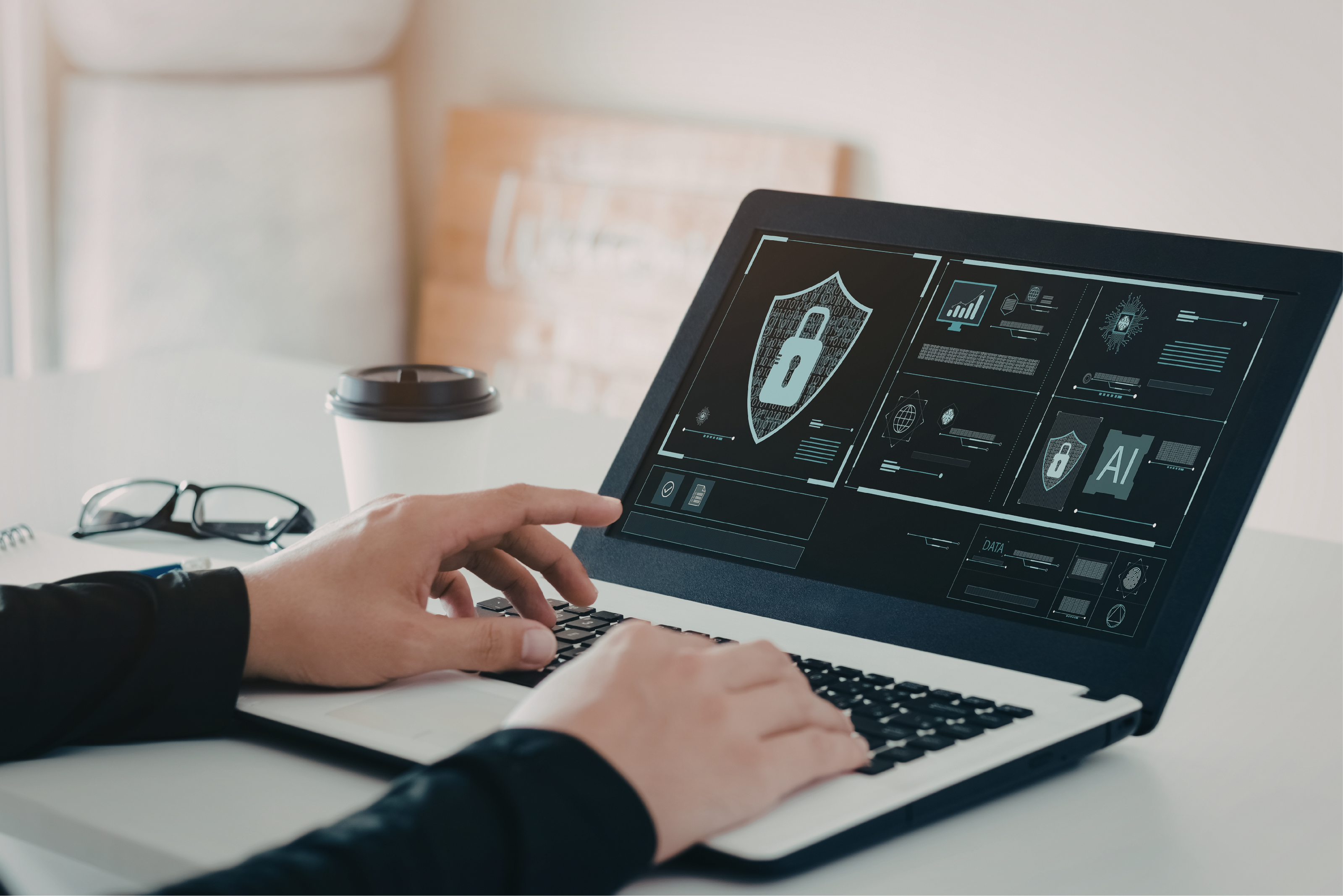Portland Accounting IT Solutions: Benefits of IT Management for CPAs
Proactive IT management is a strategic approach that anticipates and addresses potential issues in IT infrastructure before they escalate into...
6 min read
Heroic Technologies : Updated on August 5, 2025

Cybersecurity for government offices is a critical concern. The protection of public data is essential for maintaining trust and ensuring the smooth operation of government functions. As cyber threats continue to change, adopting managed solutions has become vital for safeguarding sensitive information.
Government offices face unique cyber threats that stem from various vulnerabilities. Common issues include:
Insufficient employee training exacerbates these risks. Employees often lack awareness about cybersecurity protocols, leading to mistakes that can compromise sensitive data. The consequences of inadequate training can be severe, leaving organizations vulnerable to:
Addressing these vulnerabilities requires a multifaceted approach. Investment in modern technology and comprehensive employee training programs is crucial for enhancing cybersecurity resilience. By recognizing these risks, government entities can take proactive steps towards safeguarding public data.
Government agencies urgently need to go digital to improve their cybersecurity measures. Traditional systems often fall short against constantly changing threats. By using modern cybersecurity solutions like cloud-based platforms, agencies can greatly enhance their data security.
Cloud solutions can bring the following benefits:
The integration of cloud solutions not only modernizes government cybersecurity infrastructure but also significantly reduces the burden on IT staff. As agencies transition to these advanced systems, they enable a more proactive approach to data protection.
AI-powered security analytics is changing the game for cybersecurity solutions in government offices. It offers advanced features that allow for better threat detection and quicker response times. Here are the main benefits:
AI algorithms have the ability to analyze large amounts of data in real-time. They can identify patterns that suggest potential security breaches, allowing government agencies to find unusual activities before they become major threats.
With automated systems in place, immediate response actions can be triggered as soon as suspicious activities are detected. This helps minimize the time it takes to respond, reducing the chances of data loss or disruption to operations.
Machine learning models have the capability to adapt and improve over time. This means they can refine their skills in identifying new and emerging threats. Even as cybercriminals change their tactics, AI systems will continue to stay one step ahead, ensuring strong defenses.
By automating routine security tasks, government agencies can make better use of their human resources. This allows staff members to focus on strategic initiatives instead of getting caught up in manual monitoring processes.
Implementing robust data security practices extends beyond technology alone. It requires a holistic approach that encompasses data governance, threat intelligence, and effective backup strategies.
Outsourcing IT management to a trusted provider can significantly bolster network security measures in government offices. Managed IT services offer tailored solutions that address specific problems, including:
These attacks encrypt critical data, demanding payment for recovery. Managed service providers (MSPs) implement robust security protocols, including real-time monitoring and advanced threat detection systems. This proactive approach helps prevent ransomware incidents before they escalate.
Government agencies often rely on third-party vendors for various services. MSPs assess the security posture of these suppliers, ensuring that any weaknesses are addressed. By integrating strong vendor management practices, agencies can mitigate risks associated with compromised supply chains.
24/7 surveillance of networks is essential in identifying and responding to threats swiftly. MSPs provide constant oversight, allowing government entities to focus on their core missions while ensuring cybersecurity remains a priority.
Many managed IT services offer expertise in regulatory requirements, ensuring adherence to standards like HIPAA. This compliance safeguards public data while enhancing trust with citizens.
Transitioning to managed IT services can significantly enhance security and efficiency in government operations. By adopting these solutions, agencies can:
MSPs help streamline IT processes, allowing government entities to allocate resources more effectively. This results in reduced overhead costs and enhanced productivity.
Regular updates and maintenance provided by MSPs ensure that government technology remains current, reliable, and secure. This proactive approach decreases the likelihood of system failures and data breaches.
Establishing best practices tailored towards compliance with regulations is crucial for protecting public data. Key measures include:
Implementing these strategies not only secures sensitive information but also fosters a culture of accountability within government operations.
Choosing the right MSP is crucial for government entities aiming to enhance their cybersecurity posture. Key features to look for include:
Government agencies face increasing cyber threats that can endanger public data and trust. To tackle these challenges, it’s crucial to prioritize cybersecurity measures. Here are some strategies to consider:
Utilize advanced tools such as cloud platforms and AI analytics to enhance security infrastructure. These technologies provide scalable solutions that adapt to evolving threats.
Collaborating with trusted MSPs allows government offices to access specialized expertise in cybersecurity solutions tailored for public data security. These partnerships can significantly improve threat detection and response capabilities.
Implement proactive strategies to fortify defenses against potential breaches. Regular assessments and updates to security protocols ensure readiness against sophisticated attacks.
Effective data protection strategies not only safeguard sensitive information but also uphold public confidence in government operations. Transparent communication about security measures reinforces trust among citizens.
Cybersecurity remains a critical aspect of government operations. Ensuring the secure handling of public data is essential not only for the integrity of services but also for maintaining public trust.
Key benefits of utilizing managed solutions include:
Government entities must take proactive steps towards improving their cybersecurity posture. Collaborating with a reliable managed provider can empower agencies to fortify defenses against cyber threats. Embrace these solutions to protect sensitive data and uphold the mission of serving the public effectively.
Cybersecurity is crucial for government offices as it protects sensitive public data from cyber threats and vulnerabilities. With increasing digital transformation, safeguarding this information ensures the integrity and trustworthiness of government operations.
Government agencies often face risks such as outdated systems, unsecured IoT devices, insider threats, and insufficient employee training. These vulnerabilities can lead to data breaches and compromise public trust.
Adopting cloud-based platforms allows agencies to strengthen their cybersecurity infrastructure. These modern solutions provide scalable security measures that effectively protect sensitive data from emerging threats.
AI-driven security analytics enhance threat detection capabilities by analyzing vast amounts of data in real-time. This technology expedites response times to potential breaches, allowing government offices to react swiftly to cyber incidents.
Implementing strong data governance policies, dynamic threat intelligence mechanisms, and effective backup strategies are essential practices. These measures create a holistic approach to safeguarding public data beyond just technological solutions.
Key features include 24/7 monitoring, predictable budgeting, and continuous support capabilities. These elements are vital for ensuring robust network security against specific threats like ransomware and supply chain attacks.
Proactive IT management is a strategic approach that anticipates and addresses potential issues in IT infrastructure before they escalate into...

Remember when a simple password felt like enough to guard your digital kingdom? Those days are long gone. Industry research, including Verizon’s Data...

Picture this: It’s 2:00 PM on a Tuesday. You’ve just finished a heavy lunch, and now you’re sitting in a dimly lit conference room, or worse, staring...
Cybersecurity and HIPAA compliance in San Jose are critical aspects of modern healthcare practices. Protecting patient information isn’t just a...

Cybersecurity has emerged as a critical concern for businesses across the spectrum, regardless of their size or industry. The internet age has...

In today’s digital age, healthcare organizations must have a robust incident response plan to protect sensitive patient data and ensure regulatory...